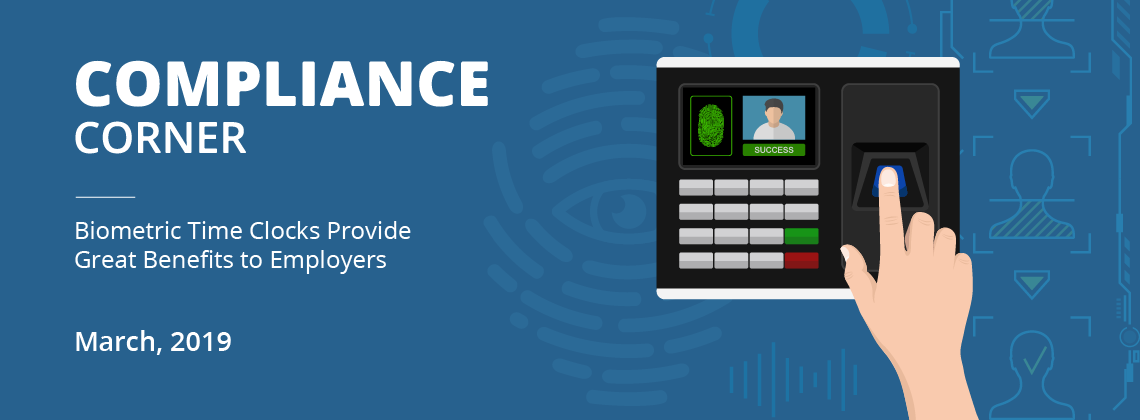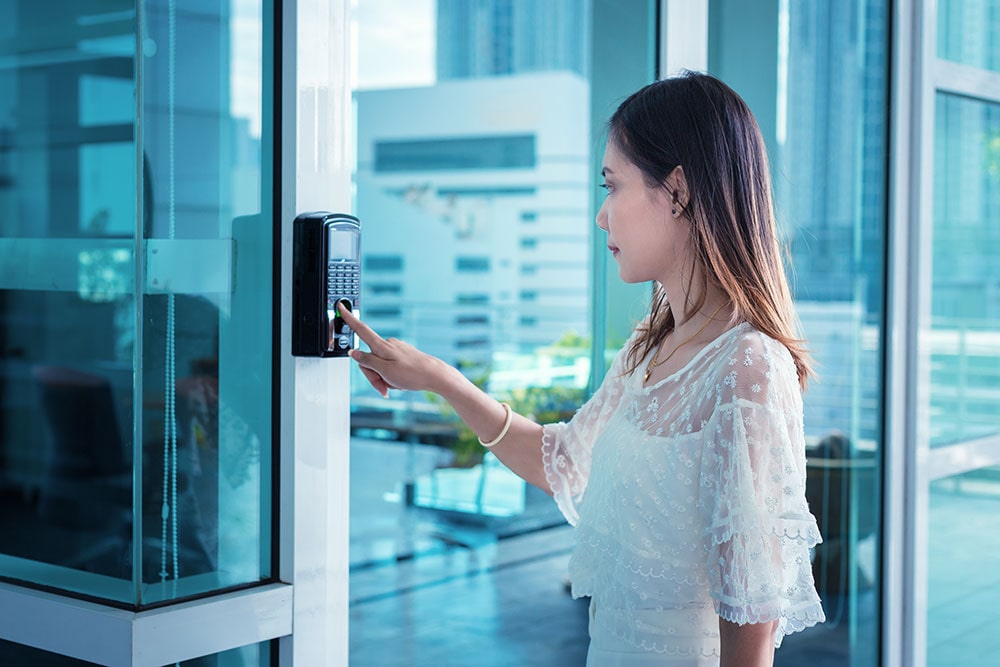Biometric Time Clocks Provide Great Benefits to Employers


Paul Kramer
Director of Compliance
Companies looking for a more effective way to track employee time should consider using biometric time clocks. Biometric time clocks scan personal features—a fingerprint, retina, iris, hand shape, face geography, or other biometric identifier—to recognize and clock workers into, and out of a shift. These devices improve timekeeping efficiency, provide more accurate wage calculations, eliminate buddy punching, prevent employee time theft, and are easy to use.
A spate of lawsuits filed recently in Illinois against certain employers using biometric scanners, however, has some companies that employ biometric technology wondering if they are next to be sued. But biometrics pose little risk of liability if employers follow proper procedures, and currently the best practices to follow are those set forth in the Illinois Biometric Information Privacy Act (BIPA). BIPA is the most stringent legislation in the United States affecting timekeeping systems with biometric security and requires private entities to, among other things:
Policies
Develop, abide by, and make available to the public a written policy for retaining and destroying biometric identifiers and biometric information.
Informed consent
Provide written notice to and obtain a written release from a person before collecting or storing their biometric identifiers or biometric information and inform them how long and for what purpose it will be used.
Digitalize Compliance Processes to Reduce Risk
Learn more effective ways to demonstrate compliance with the complex matrix of labor laws, while also keeping costs down and reducing risks.
Privacy
Treat any biometric data the same as or more protective than the way the entity stores, transmits, and guards other confidential and sensitive information.

Disposition
Dispose of biometric identifiers and biometric information once the reason for collecting it has been satisfied or within 3 years of the person’s last interaction with the entity, whichever occurs first.
Not for sale
Refrain from selling, leasing, trading, or otherwise profiting from a person’s biometric information or identifiers.
Understand Biometric Information Privacy Laws
If employers follow these rules not only will they comply with BIPA, but they should alleviate any concerns their employees may have that their biometric data is being wrongfully captured or disclosed. Since most U.S. states do not have biometric privacy laws, employers may implement biometric time clocks in most states without restriction. Keep in mind that other places are considering enacting BIPA-like legislation, and some states have already passed statutes that could affect biometric time clock users.
For example, Texas has legislation regulating the capture of biometric identifiers for commercial purposes (without defining “commercial purpose”), and New York prohibits most employers from requiring the fingerprinting of employees as a condition of securing or continuing employment, although voluntary fingerprinting is permissible. Nevertheless, if employers understand these types of laws and stay within their bounds, using biometric time clocks is a safe, convenient, and compliant way to run a cost-effective business.
More Awesome Content!
Embedding an ‘Eyes Wide Open’ Mindset Into HR Technology Selection
Gartner guides teams responsible for deciding on their organization’s next HR technology investment to set themselves up for success.
5 Workforce Management Secrets to Thrive in 2021 and Beyond
Download this eBook to learn the 5 secrets that will help your organization shift from surviving to thriving now and in the future and learn how the right workforce management solution can empower your initiatives.
Reshaping Workforce Management Strategies to Meet Growing Employee Expectations
See how evolving preferences and pivotal factors have led to a transformative shift in workforce expectations.




